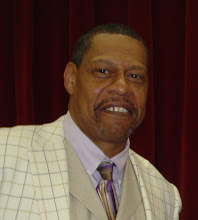I really hate to have to write this story, it tears at my heart. I have to admit that I have always wanted to believe that good will always triumph over evil and Blacks if given the chance will serve their people. The reason this story is so hard for me is because I am old enough to remember when Zimbabwe was Rhodesia, a minority white control state in Africa. Rhodesia was just as much a part of the apartheid system as South Africa, until it gained its independence in 1980.
When Zimbabwe became independent no one was more proud than I, I had great expectations for Mr. Mugabe and Mr. Nkomo to create a new nation of unity and prosperity. Unfortunately, this has not been the case, as the following figures show Zimbabwe is on a course of self destruction and it is being led by Mr. Mugabe. Mr. Mugabe has since the beginning of independence has had the full run of the country and the government, so the situation in Zimbabwe is his responsibility. It seems that many do not realize that governance is more difficult than independence. With independence there is one goal, but with governing there are many different goals and all require simultaneous attention.
Food supply and food access are worse now than in 1992, according to a report by the U.N. Food and Agriculture Organisation (FAO).
Yet, unlike 1992, reservoirs are full of water and there is plenty of grazing for cattle. Why are things worse? Ten years ago, a drought induced by the El Nino weather phenomenon caused the crisis.
"It was strictly a natural disaster," says Judith Lewis, regional director for the World Food Programme (WFP).
Today, a combination of bad governance, economic crisis, widespread poverty and the spread of HIV/AIDS add man-made elements to a natural disaster.
Early warning leading to action can stop a shortage from turning into a famine. In spite of many forecasts of looming crisis, Agriculture Minister Joseph Made denied it until the presidential elections were over in March.
"This food shortage is the accumulation of three years of economic mismanagement," Zimbabwean economist John Robertson told AlertNet by telephone from Harare.
One-third of jobs have been lost since 2000, says Finance Minister Simba Makoni. People's coping mechanisms are stretched to the limit. These include going to live with relatives, taking children out of school and sending them to work -- for example panning for gold or begging -- eating one meal a day instead of two, having more than one job, looking for food in the bush because you there is none to buy.
In the past decade, HIV/AIDS rates have soared to nearly 34 percent, or one in three adults, according to the Joint U.N. Programme on HIV/AIDS (UNAIDS).[1]
Zimbabwe has deteriorated into another African nation led by a repressive regime bent on destroying the country in the name of saving it. There is always difficulty going from a minority ruled country to a majority ruled one. You have issues of wealthy redistribution, land reform, and health and educational opportunities that must be dealt with. In order to keep from derailing the economy these issues must be dealt with in a very delicate way. It has to be a gradual process incorporating the pressing needs of the long neglected masses with the economic stability of the past regime. President Mugabe has not been able to negotiate these dangerous waters. He has used repression, violence, and intimidation to keep his grip on power and the people of Zimbabwe have suffered considerably for it.
It is time to open up the political process and allow others to help shape the future of Zimbabwe. It is time for President Mugabe to resign. As with all despots though he will not and his people will continue to suffer. Zimbabwe had the potential to be a shining jewel in Africa, an opportunity to show that Black Africans could govern and prosper. Today this is just a dream that has passed, as it has with so many African nations.
I feel and pray for the people of Zimbabwe and for all African people who are living under oppression. It is sad that oppression today has a new face and it is not white, it is black. One day I hope that we can free Africa from the new oppressors, a day where all Africans can rise up as one with freedom and pride, no longer living in fear. I pray for a united Africa where all African people stand together against internal and external oppression, where unity replaces tribalism. The Africa that Bob Marley use to sing about, the Africa that Nelson Mandela speaks about, the Africa I have always dreamed about.
I have a dream of Africa
Where men are great, proud and dignified
An Africa of Cleopatra, Sheba, Nzinga and Nyamazana
An Africa without genocide, starvation, or disease
An Africa, without dictators!
A free Africa
Lungelo Mbatha
[1] http://www.reliefweb.int/rw/rwb.nsf/d2fc8ae9db883867852567cb0083a028/bc9a79935b9b94bbc1256c08002fc6cb?OpenDocument







 Stumble It!
Stumble It!
No comments:
Post a Comment